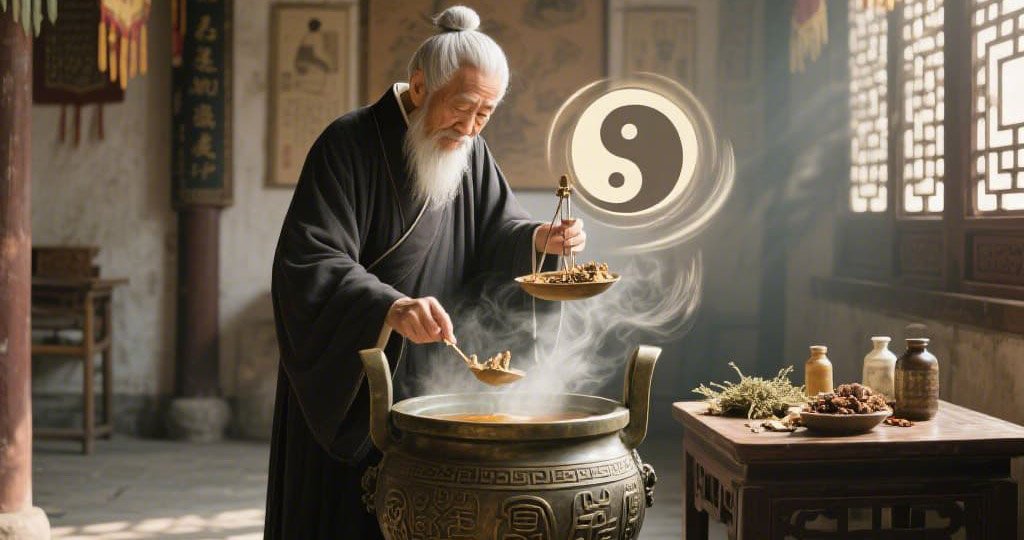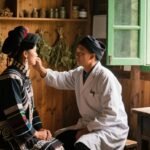Yangdai Taxiangfa (Postpartum Blood Deficiency)
Overview
In Miao medicine, postpartum blood deficiency is called Yangdai Taxiangfa (also Yangdai Jiangbinwo). It describes the depletion syndrome arising from excessive blood loss during delivery or postpartum.
In TCM, postpartum blood deficiency occurs when heavy bleeding at birth or a weak postnatal spleen and stomach fail to generate sufficient qi and blood, leading to anemia-like symptoms.
In Western medicine, it presents as postpartum anemia: fatigue, weakness, sweating, pale complexion, and pale lips and eyelids due to blood loss or inadequate nutrition.
Huhoujipeng · Miao Disease Classification
This minor disorder divides into two types:
Cold-disease blood injury
Cold-disease stomach injury
Aiduojiang · Causes
Closely related to maternal constitutional deficiency, excessive bleeding at or after delivery, and poor postpartum nutrition.
Gengduomeng · Pathogenesis
A weak constitution and spleen–stomach deficiency reduce the generation of nutritive essence, causing blood deficiency. Excessive bleeding further depletes blood, leading to pale complexion, dry brittle hair, weakness, and other deficiency signs. Overexertion injures qi and blood, preventing recovery.
Diagnostic Key Points
Diagnostic Basis
(1) Postpartum pale complexion, pale lips or eyelids.
(2) History of heavy delivery bleeding or poor postpartum nutrition.
(3) Exclusion of other medical causes.
Related Exams
CBC, full biochemistry, gynecological exam, anemia panel.
Syndrome Differentiation & Treatment
Cold-Disease Blood Injury
Manifestations: No lochia, dry brittle hair, progressive hair loss, fatigue, dizziness, low back weakness, loss of sexual function, vaginal dryness, possible atrophy.
Meridian: Cold meridian, cold disease.
Principle: Tonify qi and nourish blood (bu qi yang xue); nourish yin and generate fluids (zi yin sheng jin).

Prescription & Explanation:
Zhidougangjiafeiyou (Mistletoe stem, sang ji sheng) 15g
Huangjing (Solomon’s seal rhizome, huang jing) 30g
Xu duan (Dipsacus root, xu duan) 15g
Bai shao (White peony root, bai shao) 20g
Maidong (Ophiopogon, mai dong) 15g
Decoction orally.
Cold-Disease Stomach Injury
Manifestations: No lochia, cold limbs, frequent colds, poor appetite, loose stools, dull complexion, brittle hair, vaginal atrophy, loss of libido.
Meridian: Cold meridian, cold disease.
Principle: Strengthen spleen and harmonize stomach (jian pi he wei); tonify qi and blood (bu qi yang xue).
Prescription & Explanation:
Qianshicao (Rubia cordifolia, qian shi cao) 15g
Gouqizi (Goji berry, gou qi zi) 20g
Xuerenshen (Sanchi, xue ren shen) 20g
Jinyingzi (Rose hip, jin ying zi) 20g
Nvzhenzi (Privet fruit, nv zhen zi) 18g
Decoction orally.
Prevention & Care
Rest; eat iron-rich, easily digested, nutritious foods; avoid picky eating.
Keep warm; maintain regular routine; exercise moderately.
Prevent chronic blood-loss conditions.
Notes
Miao medicine teaches that illness arises from imbalances of qi, blood, and fluids. Postpartum blood deficiency stems from constitutional weakness, excessive bleeding, and poor nutrition. Treatment focuses on nourishing and replenishing the blood.


Leave a Reply